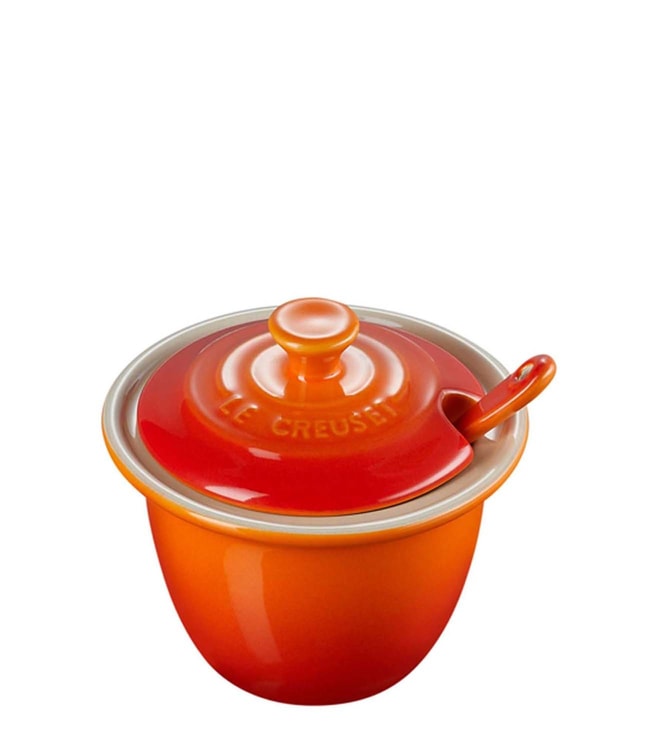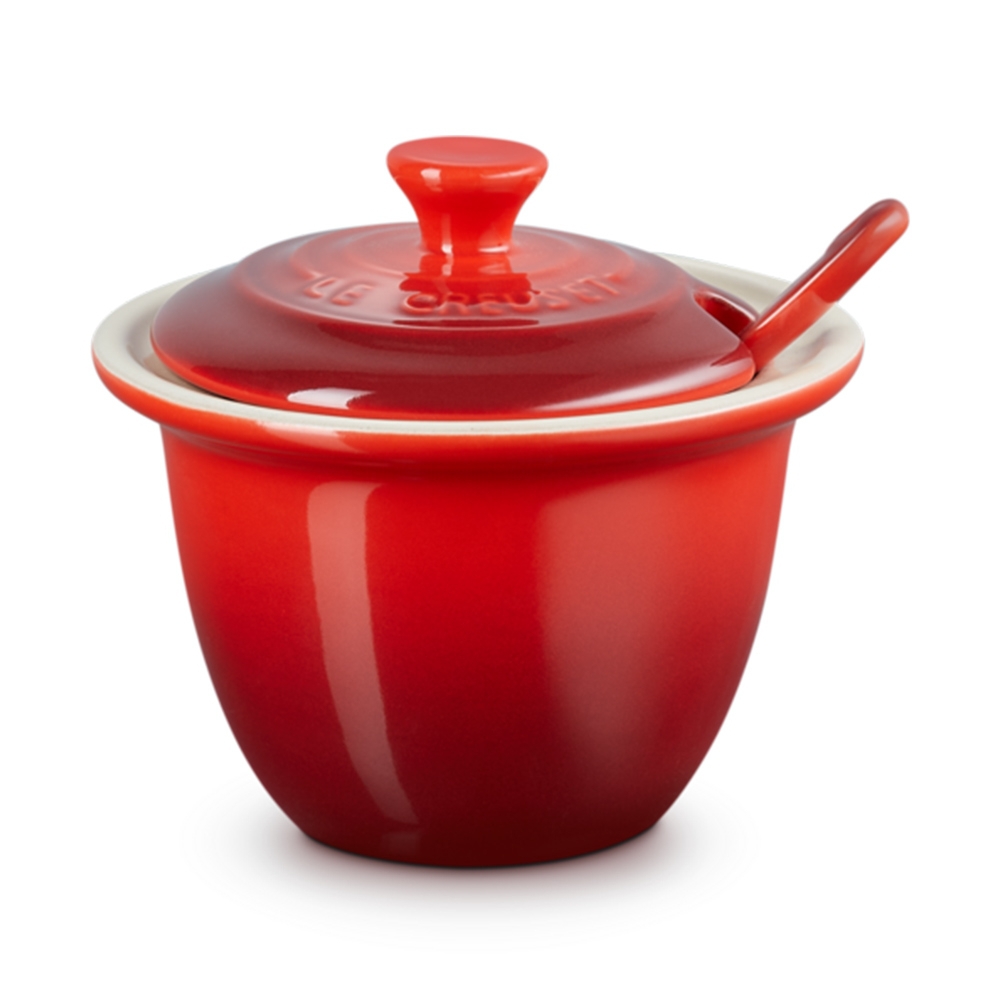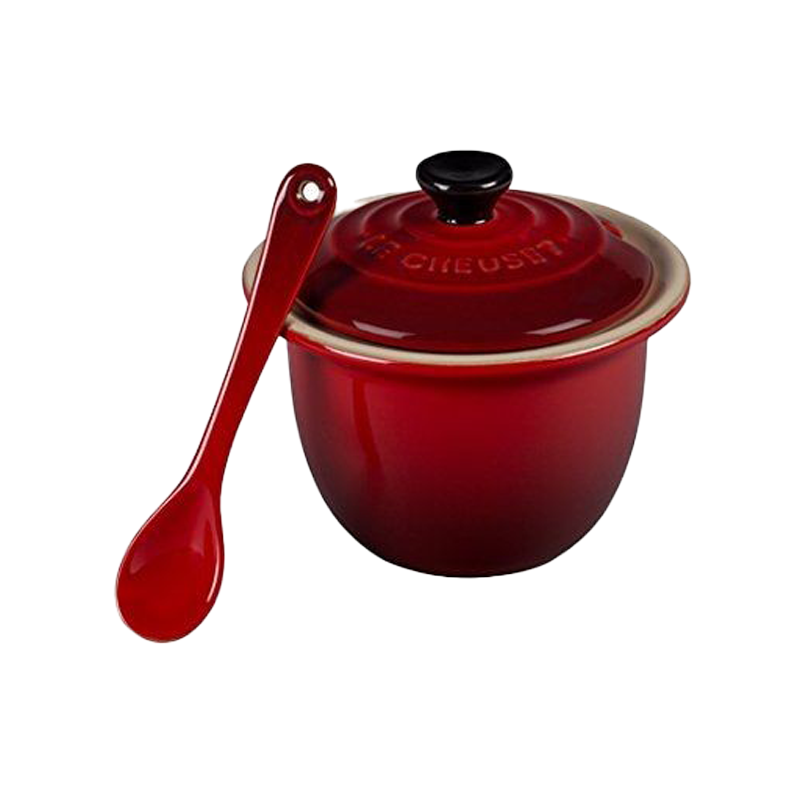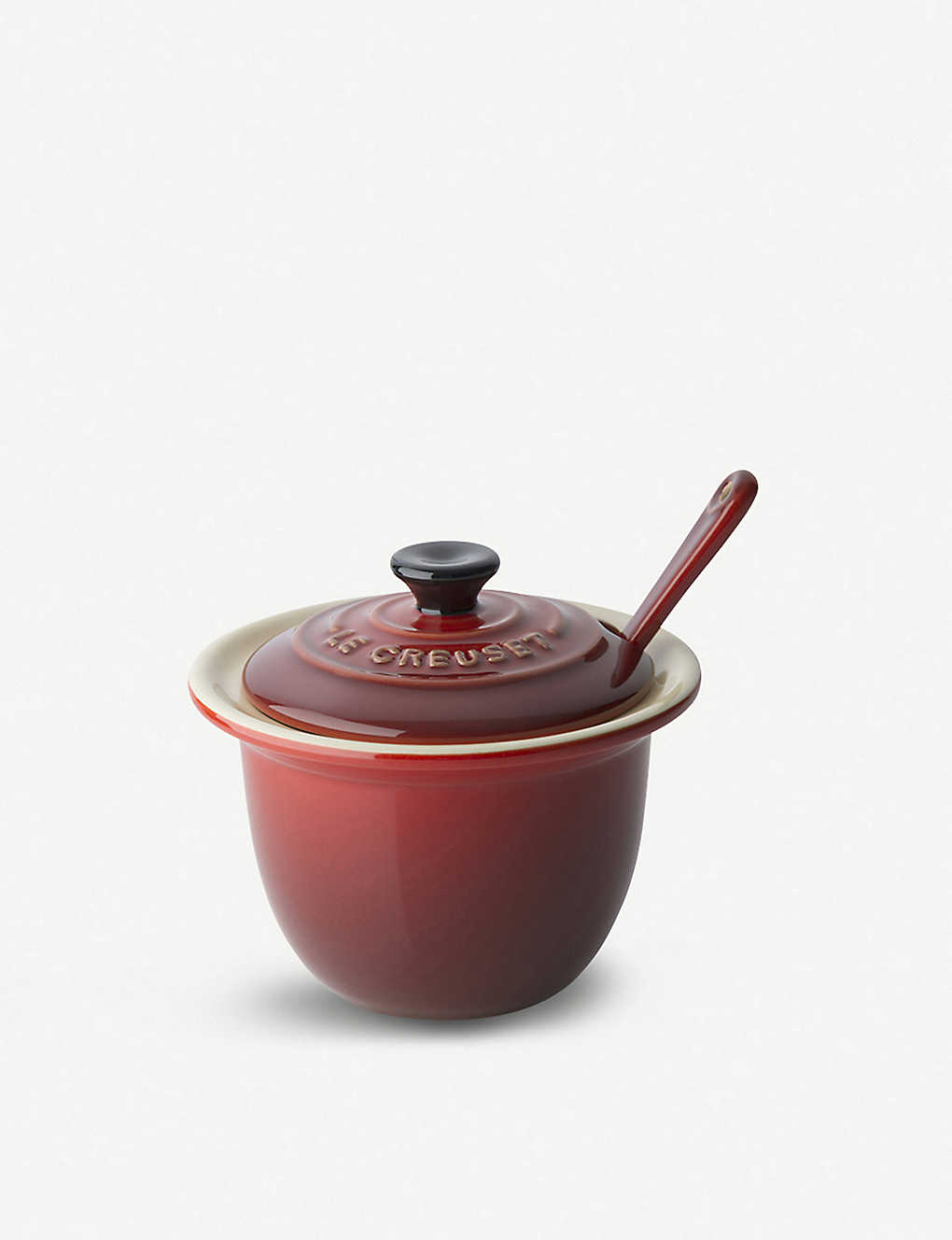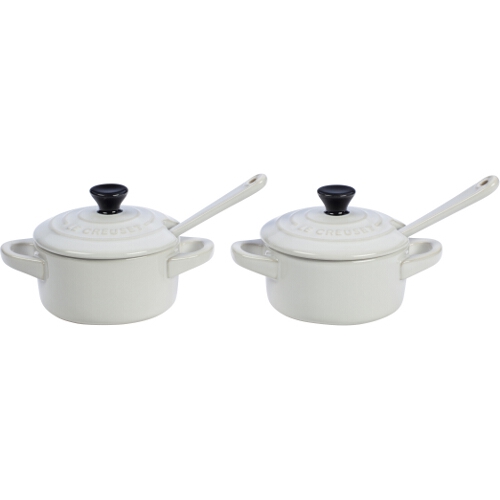
Le Creuset Stoneware Condiment Pot with Spoon, 6.75 oz. (4"), Marseille : Buy Online at Best Price in KSA - Souq is now Amazon.sa: Home

Unboxing LE CREUSET Mini Cocottes and Condiment Pots w/ Spoon | Stonewares | Ceramics | Ep 41 - YouTube

Le Creuset Tarro con cuchara con pomo de de cerámica de gres, 0, 18 L, Cereza, 70801160600000 : Amazon.es: Hogar y cocina

